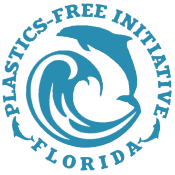Most plastics eventually degrade into very small particles called microplastics. A comprehensive review of scientific evidence published by the European Union’s Scientific Advice Mechanism in 2019 revealed that microplastics are now present in every part of the environment. This means that they are in the air we breathe, in the food we eat, and in the water we drink. There is great concern that these microplastic particles and the toxic materials they carry may have adverse effects on human health. To date, limited scientific studies have addressed this issue, leaving us in the dark about the real dangers of microplastics. However and importantly, the world is rapidly waking up to the idea that it is urgent to study and understand how microplastics affect our health. A simple web search, using the term “microplastics meetings” reveals a wealth of recent and upcoming meetings dedicated to promoting research into microplastics and identifying funding sources to support this research. A sampling of such meetings is listed below.
http://www.jpi-oceans.eu/news-events/events/microplastics-kickoff-meeting
https://www.setac.org/page/scienceplastics
https://microplastics.whoi.edu/
https://www.sciencesconf.org/browse/conference/?confid=7267
https://waset.org/microplastics-and-urban-plastic-pollution-conference-in-august-2021-in-london
https://waset.org/microplastics-and-ocean-plastic-pollution-conference
http://www.imo.org/en/MediaCentre/PressBriefings/Pages/36-microplastics-gesamp.aspx#.X3OcrGhKg2w
https://chemicalwatch.com/88200/who-invites-experts-to-join-evaluation-of-microplastics-pollution

